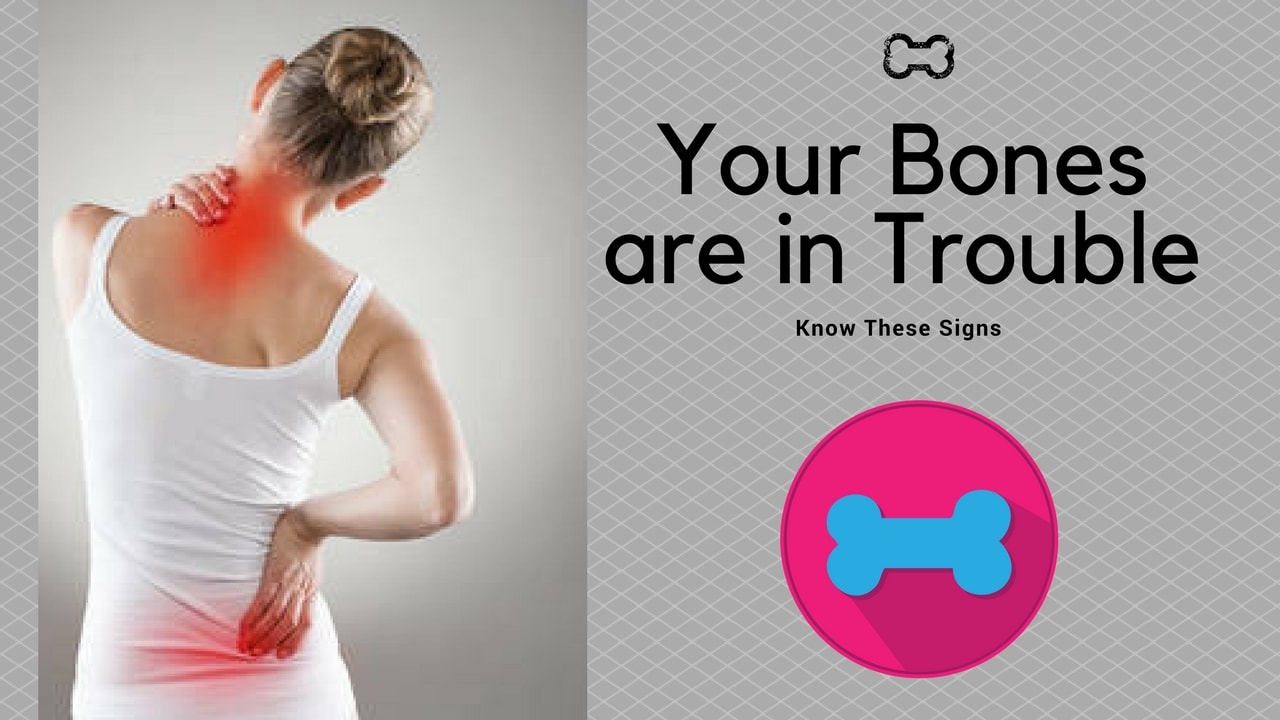
Yes, Your Bones Speak! Know These Signs that Reveal Your Bones are in Trouble
28-03-2018 | Posted By: Chhavi | 2839 View(s)
How many of you have seen people in their 20s complaining about joint pain? Well, I know most of you have! There was a time when people experienced back pain and joint pain when they got older. Blame our hectic lifestyle, careless attitude, love for junk food or the reluctance to indulge in physical activity, joint pain has become quite these common days. Joint pain should not be taken casually because it is a warning sign of arthritis.
If you suspect that your bones might be in trouble, it’s important to pay attention to certain signs and symptoms. Keep in mind that I’m not a doctor, but I can offer some general information. If you’re experiencing any of these signs, it’s crucial to consult a healthcare professional for proper evaluation and advice.
1.Frequent Fractures or Breaks:
If you’re experiencing fractures or breaks more often than usual, it may be a sign of weakened bones.
2.Chronic Pain:
Consistent, unexplained bone pain, especially in the back or hips, could be indicative of bone problems.
3.Reduced Height:
As bones weaken, compression fractures in the spine can cause a loss in height over time.
4.Poor Posture:
Weakened bones can lead to a stooped posture, particularly in the upper back (referred to as kyphosis).
5.Difficulty in Movement or Mobility:
If you’re finding it harder to move around or perform daily activities, it might be due to weakened bones.
6.Receding Gums or Loose Teeth:
These can be signs of osteoporosis, a condition where bones become fragile and prone to fractures.
7.Brittle Nails:
Brittle, easily breakable nails can sometimes be an indication of nutritional deficiencies that may affect bone health.
8.Muscle Weakness:
Weakness in the muscles that support the bones can exacerbate bone problems.
9.Frequent Fatigue:
Weak bones can lead to reduced mobility and, consequently, increased fatigue.
10.Changes in Bone Density:
This can be assessed through a bone mineral density (BMD) test, which measures the strength and density of bones.
11.Family History:
If there’s a family history of bone-related issues, you may be at a higher risk.
12.Low Calcium Intake:
Insufficient intake of calcium, a crucial mineral for bone health, can lead to bone problems.
13.Vitamin D Deficiency:
This vitamin is essential for calcium absorption, so a deficiency can lead to weakened bones.
14.Hormonal Changes:
Conditions like menopause or hormonal disorders can lead to bone density loss.
15.Certain Medications:
Some medications can weaken bones over time. For example, long-term use of corticosteroids can have this effect.
16.Lifestyle Factors:
Smoking, excessive alcohol consumption, and a sedentary lifestyle can all contribute to weakened bones.
17.Unexplained Back Pain:
Chronic, unexplained back pain, particularly in the lower back, can be a sign of underlying bone issues.
18.Joint Stiffness:
Stiffness in the joints can sometimes be linked to bone health.
Remember, this list is not exhaustive, and individual symptoms can vary. If you’re concerned about the health of your bones, it’s crucial to seek advice from a healthcare professional. They can provide a proper diagnosis and recommend appropriate treatment or lifestyle changes to improve bone health.
Consult a good orthopaedic doctor to get a proper evaluation of your condition.

If you experience joint pain often, you must eat a healthy diet. Calcium plays a vital role in keeping your bones healthy. Most bone diseases develop due to deficiency of calcium in the body. Eat a diet rich in calcium and other vitamins. Some of the foods that help fight arthritis are fruits, vegetables, nuts and seeds, beans, fish, olive oil and whole grains. Make sure to add these foods to your daily diet. To keep your bones healthy, avoid junk food and processed foods
You must stay physically active, maintain a healthy weight and get a health checkup done regularly to keep arthritis and other bone diseases at bay.Self-management of arthritis symptoms is essential if you do experience the same as Arthritis is one of the major Bone Ailments.
What Questions Should You Ask Your Doctor If You Have Arthritis?
• Does arthritis only affect joints or other areas of my body as well?
• Are there any other health conditions that develop due to arthritis?
• What foods do I need to avoid to treat arthritis?
• What causes arthritis?
• How and when should I exercise?
• I have certain special concerns (for example pregnancy, special diets, alternative medicines, etc.) How do these conditions relate to my situation?
• For how long will the treatment go on?
• Are there any precautions I need to take?
Do not shy away from asking questions from your doctor. Look out for the symptoms of arthritis and go for a health checkup regularly to prevent arthritis. This will not only help you know the condition of your bones but also help you know the overall state of your health.


